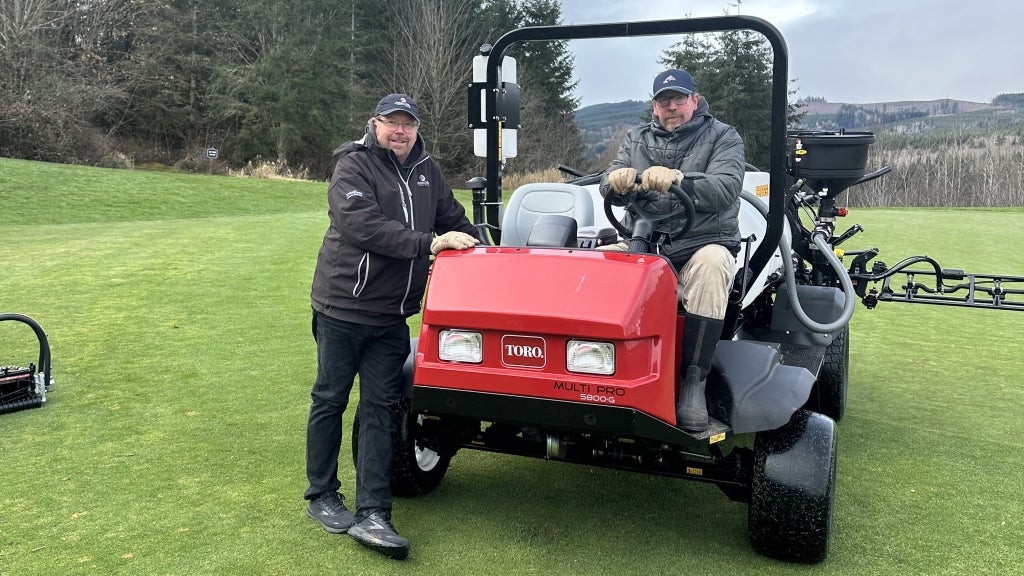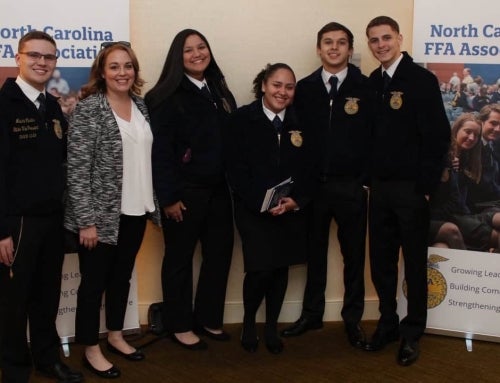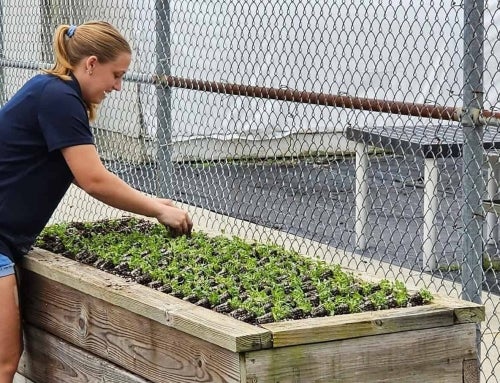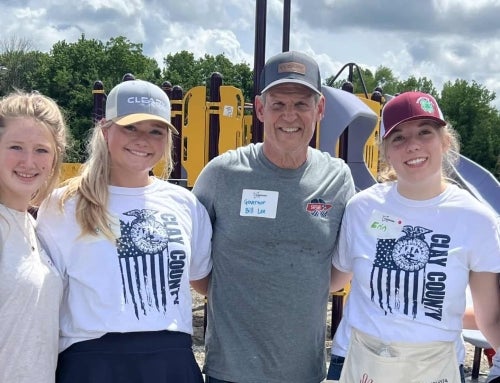
Brothers Bob (left) and Mike (right) Pearsall work side by side at the Salish Cliffs Golf Course. Photo courtesy of Bob Pearsall.
Growing up in Thurston County, Wash., the Pearsall family raised ducks, chickens, cattle, rabbits and turkeys. When Bob, the oldest son, entered high school, his parents encouraged him to get involved in the Washington FFA Association.
“I didn’t even know what it was then, but my mom said it would be good for me,” he says.
At the time, poultry was his niche; Bob won grand champion in showmanship and excelled in judging. “I was good at it, but it wasn’t my passion,” he says. “I found myself wanting to do something [for a vocation] outside, maybe in the area of natural resources.”
Even a visit to Europe as part of the People-to-People Student Ambassador Program didn’t answer Bob’s soul-searching. “I toured farms for a whole summer, going to wineries, bulb farms and one that was completely organic,” he says. “I was still looking for my focus area, but FFA was helping me look.”
A few years later, the Pearsall family attended an aunt and uncle’s wedding anniversary celebration at a country club in South Dakota. “My brother, Mike, and I were out on the golf course wondering, ‘How do they grow this grass so short?’ We were intrigued,” Bob Pearsall says.
Still in high school, Mike talked with his FFA advisor, North Thurston High’s Mark Sloan, after returning to Washington. “Mr. Sloan told Mike there was a great turfgrass school in Tacoma,” Bob Pearsall says. “And he helped Mike get a scholarship.”
Bob Pearsall had already graduated and was working for the Washington State Department of Natural Resources in fire protection. “Mike was reading all this stuff about the turf school,” he says. “I looked at it and decided I wanted to do it, too.”
The Pearsall brothers excelled in turf school, typically ranking No. 1 and 2 in their classes, and both got jobs right away after graduation. A young neighbor, Rick Hancock, came to work at Bob Pearsall’s course. So did Rick’s brother, Phil, and both grew to love turf as much as the Pearsall brothers. Rick and Phil have a sister, Leslie, whom Bob Pearsall met and eventually married.
Today, Bob Pearsall is the golf course superintendent at Salish Cliffs Golf Course in Shelton, Wash., and Mike Pearsall is the course’s assistant superintendent. Phil Hancock is the superintendent at The Golf Club at Hawks Prairie at University Place, while Rick Hancock is the superintendent at Indian Summer Golf and Country Club.
Different Crop, Same Dedication
A golf course superintendent’s job includes turfgrass management, environmental stewardship, personnel management, budgeting, event management and many other roles. Minor daily tasks, such as repairing divots, ball marks and picking up trash, all impact play. Major, longer-term responsibilities include yearly or seasonal watering, fertilizing, topdressing, seeding or sodding, drainage and other maintenance duties that ensure the health and beauty of a course.
“In a way, we farm,” Bob Pearsall says. “My crop isn’t a field of wheat; it’s turfgrass. We’re not making bread with a field of wheat, but we’re creating [a place] for golfers to make memories, get exercise or enjoy camaraderie. We’re also giving them a level of playability they might not see anywhere else because of our attention to detail.”
Creating a Pathway for Others
Along with growing turfgrass, Bob is interested in growing and developing a pipeline for current and future FFA members. His course recently hosted a group of Washington agricultural educators and FFA advisors as part of an annual workforce development tour sponsored by the Golf Course Superintendents Association of America (GCSAA).
The success of the tour and other developments convinced GCSAA, FFA and other stakeholder organizations to create a pathway for a turfgrass-focused Career Development Event (CDE). This year’s National Turfgrass Science Invitational Event, held in conjunction with the GCSSA national conference, is scheduled to take place in San Diego in February.
“I used to host field visits where chapters would come out to the course, stand on the green and ask us questions,” Bob Pearsall says. “I’m trying to get that going again. I want every FFA advisor or instructor reading this to call their local golf course superintendent and do a field visit. I want that conduit between schools and golf course superintendents because we need people to work with us who are as passionate about turf as we are.”
Room to Grow
Is landscaping, groundskeeping or providing lawncare services your jam? If so, consider incorporating this interest and skill set into your Supervised Agricultural Experience (SAE) and applying for a Turf & Landscape Maintenance Agricultural Proficiency Award in the future.











